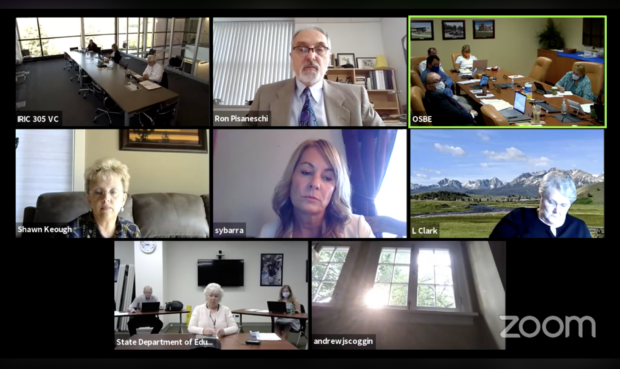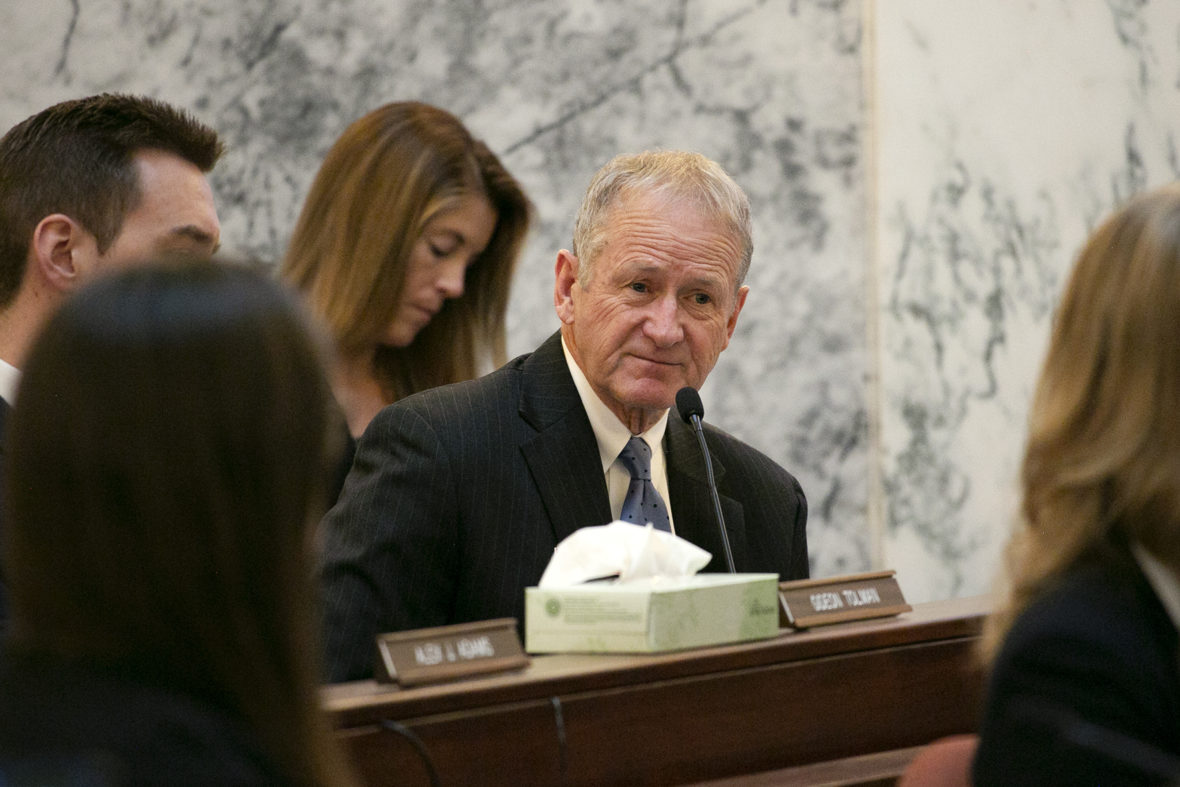
The State Board of Education Wednesday approved a temporary proposed rule allowing Idaho schools to use student enrollment rather than in-person attendance as a way to calculate state funding.
The move was intended to offer funding consistency during COVID-19 disruption, as students move between learning in person, online, or a mix of both.
The new rule uses full-time equivalent student enrollment to determine school funding, allowing schools to count students who are learning remotely for funding purposes.
“This rule is not measuring how much time the student is spending in attendance. It is measuring their minutes of courses per week, for funding purposes, and then we would expect and hope that the school district staff is making sure that the students are really engaged in the educational process,” said Tim Hill, associate deputy superintendent at the State Department of Education.
The board unanimously approved the rule, though they acknowledged it’s a move that’s bound to make some legislators uncomfortable. Chief Planning and Policy Officer Tracie Bent said she discussed this proposal with a legislative working group this summer, and some lawmakers said they felt the move should be a legislative decision, instead of a rule enacted by the State Board.
Legislators will still have the opportunity to decide in January whether the rule should stay or be replaced.
“If the Legislature were able to currently address this, that would be great. But they haven’t been given that opportunity and we can’t afford to wait until January for school districts and charter schools to try to figure out how to deal with this attendance issue,” Hill said. “The timing of such is what’s preventing the Legislature from taking action.”
Board undoes June vote on science standards
The debate over Idaho’s K-12 science standards took on another twist Wednesday when the State Board rescinded a change it made in June.
The science standards were a major point of contention during the 2020 legislative session, as they have been at the Statehouse for at least five years. The House this year attempted to completely repeal all academic standards in English, math and science before the Senate overruled the decision. When the dust of the session settled, the SDE created committees to review the academic standards in each subject area.
In June, the State Board attempted to resolve some differences with the Legislature by removing “supporting content” in science standards through a technical correction.
Supporting content included items such as teaching examples, state superintendent Sherri Ybarra said. For example, one learning standard for kindergarten physical science is that students can observe the effect of sunlight on the Earth. The supporting content suggested teachers focus on how “sunlight warms Earth’s surface.”
The Legislature was at odds with some of those teaching examples. They asked Ybarra to remove the supporting content, she said.
Over the summer, legislators, teachers and members of the science standards review committee wrote to Ybarra and State Board president Debbie Critchfield questioning whether the standards should have been changed through a more extensive rulemaking process instead.
Scott Cook, a former director of academics at the SDE, penned an op-ed calling the move illegal, and arguing that supporting content was “an integral and substantial part” of the science standards document.
Ybarra reached out to the attorney general’s office for their opinion on the process, she said, and the AG agreed the board should rescind its vote on the technical correction.
The State Board unanimously approved that change Wednesday, restoring the supporting content.
The State Board plans to leave future changes to the science standards review committee. It will consider implementing any changes or updates recommended by that review committee during a formal rulemaking process expected to happen before 2022.
“The public asked us to revisit that, and said, ‘If you put it in through rulemaking, take it out through rulemaking. Follow it by the book,” Ybarra told the State Board. “The AG’s office pretty much said, ‘You’re going to want to go down that path.'”
Hill to retire next month

Hill, the SDE’s lead finance expert plans to retire next month, Ybarra told the State Board Wednesday.
Hill has worked for the department for more than two decades. Prior to joining the SDE, he spent 20 years as a banker.
Hill’s last day with the department will be Sept. 18, communications director Karlynn Laraway said.
“I have thoroughly enjoyed my 23 years here with the State Department of Education and sending out billions of dollars,” Hill told the board Wednesday. “Sometimes I get treated like Santa Claus. In any case, thanks for that.”
